Boko Haram: what is it and how can it be stopped?
Bombing that bears the hallmarks of the Islamist extremists has killed 32 people in the Nigerian city of Yola
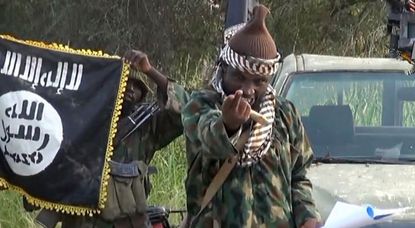
A suicide bombing has killed at least 32 people and injured more than 80 at a market in the north-eastern Nigerian city of Yola.
There was no immediate claim of responsibility, but the deadly attack bares the hallmarks of the Islamist group Boko Haram, says Reuters.
Militants have killed thousands of people since they launched their insurgency in 2009. Their attacks have been concentrated in northern Nigeria, but have also extended into Cameroon and Chad.
Subscribe to The Week
Escape your echo chamber. Get the facts behind the news, plus analysis from multiple perspectives.

Sign up for The Week's Free Newsletters
From our morning news briefing to a weekly Good News Newsletter, get the best of The Week delivered directly to your inbox.
From our morning news briefing to a weekly Good News Newsletter, get the best of The Week delivered directly to your inbox.
Yesterday's explosion ripped through a busy food and livestock market, with witnesses describing scenes of carnage. "The ground near my shop was covered with dead bodies," said one man.
The attack comes just days after Nigerian president Muhammadu Buhari visited Yola to decorate government troops for bravery during the counter-insurgency efforts, and to tour the camps that have been set up to house thousands of people displaced by the uprising.
During his visit, Buhari – who has promised that he will defeat Boko Haram by the end of this year – told troops he believed the extremists "are very close to defeat".
Military efforts to tackle the militants appear to be working, with government forces taking back much of the territory claimed by Boko Haram in the past nine months.
What is Boko Haram and what does it want?
Boko Haram – which roughly translates as 'Western education is a sin' – is a Nigerian Islamist terrorist group, founded by Mohammed Yusuf in 2002 in the northern city of Maiduguri. Officially, it wants to establish an Islamic state in Nigeria and the introduction of Sharia law. But it isn't that simple. "Injustice and poverty, as well as the belief that the West is a corrupting influence are root causes of both the desire to implement Sharia and Boko Haram's pursuit of an Islamic state," says a report by the Council on Foreign Relations.
Who leads Boko Haram?
Abubakar Shekau (pictured above) claimed leadership of the group in a video posted in July 2010 and has since appeared in a series of videos claiming to be "at war with Christians" and threatening to mutilate and decapitate those who oppose him. The BBC describes him as "a fearless loner, a complex, paradoxical man - part intellectual, part gangster".
How is it funded and where does it get its weapons from?
Boko Haram militants have reportedly received funding from Islamist groups Al-Qaeda and Somali group Al Shabaab, as well as unknown local and international benefactors. The group also has a lucrative "market of selling human beings", according to its leader. Boko Haram loots money from banks, extorts businessmen and government officials and receives millions of dollars in ransom money.
Similarly, it has raided much of its military arsenal – including armoured personnel carriers and rocket-propelled grenades – from police stations and military bases. It also has ties with arms smugglers "in the lawless parts of the vast Sahel region," according to the BBC.
How dangerous is Boko Haram?
Boko Haram began its campaign of violence in earnest in 2010. The group's worst atrocities include the massacre of an entire town earlier this year, the abduction of more than 200 school girls in Chibok, as well as a series of bombings and co-ordinated shootings at schools, churches and market places across the country, which have killed thousands more.
Will its alliance with Islamic State make it stronger?
In March, Boko Haram released a video claiming allegiance to Islamic State. It marked a "superficially impressive propaganda coup" for IS, The Guardian's Simon Tisdall argued. For Boko Haram, the connection to IS could mean more recruits, weapons, finance, know-how, and intelligence, allowing it to expand its operations in North Africa. For Western governments, the scenario "conjures up their worst nightmare – the prospect of joined-up, globalised jihad".
Can Boko Haram be stopped?
The international community has been reluctant to get involved in the conflict, and despite having the largest army in West Africa, Nigeria's military has struggled to push back the militants. Security analysts pointed to a lack of investment and corruption in the army as key reasons.
But after more than five years of insurgency, the military appears to have turned a corner in the battle against Boko Haram. Troops have reclaimed swathes of territory in the north and rescued hundreds of captured women and girls in recent months.
Much of this success has been attributed to President Buhari, a former army general, and his crackdown on corrupt military officials. The formation of a stronger regional coalition has also helped push back the militants.
"The enemies of humanity will never win. Hand in hand, we will rid our land of terrorism," Buhari said in a statement after yesterday's attacks. But the war against the insurgents is still far from over. Attacks on soft targets like markets, schools and churches remain widespread and Boko Haram insists it has not been defeated. "We are still at [the] battle ground," leader Abubakar said in a recent statement.
Create an account with the same email registered to your subscription to unlock access.
Sign up for Today's Best Articles in your inbox
A free daily email with the biggest news stories of the day – and the best features from TheWeek.com
-
 The hunt for Planet Nine
The hunt for Planet NineUnder The Radar Researchers seeking the elusive Earth-like planet beyond Neptune are narrowing down their search
By Chas Newkey-Burden, The Week UK Published
-
 Magazine interactive crossword - April 26, 2024
Magazine interactive crossword - April 26, 2024Puzzles and Quizzes Issue - April 26, 2024
By The Week US Published
-
 Magazine solutions - April 26, 2024
Magazine solutions - April 26, 2024Puzzles and Quizzes Issue - April 26, 2024
By The Week US Published
-
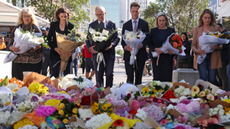 Sydney mall attacker may have targeted women
Sydney mall attacker may have targeted womenSpeed Read Police commissioner says gender of victims is 'area of interest' to investigators
By Julia O'Driscoll, The Week UK Published
-
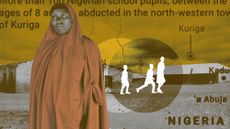 Why are kidnappings in Nigeria on the rise again?
Why are kidnappings in Nigeria on the rise again?Today's Big Question Hundreds of children and displaced people are missing as kidnap-for-ransom 'bandits' return
By Julia O'Driscoll, The Week UK Published
-
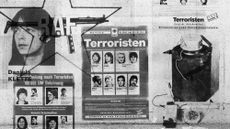 The Red Army Faction: German fugitive arrested after decades on run
The Red Army Faction: German fugitive arrested after decades on runWhy Everyone's Talking About Police reward and TV appeal leads to capture of Daniela Klette, now 65
By The Week UK Published
-
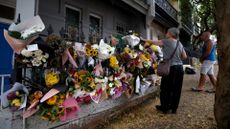 Deaths of Jesse Baird and Luke Davies hang over Sydney's Mardi Gras
Deaths of Jesse Baird and Luke Davies hang over Sydney's Mardi GrasThe Explainer Police officer, the former partner of TV presenter victim, charged with two counts of murder after turning himself in
By Austin Chen, The Week UK Published
-
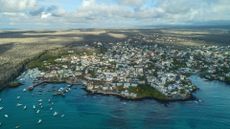 How the idyllic Galapagos Islands became staging post in world drug trade
How the idyllic Galapagos Islands became staging post in world drug tradeUnder the radar Ecuador's crackdown on gang violence forces drug traffickers into Pacific routes to meet cocaine demand
By Harriet Marsden, The Week UK Published
-
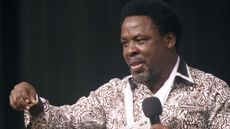 TB Joshua: the disgraced Nigerian televangelist
TB Joshua: the disgraced Nigerian televangelistWhy everyone's talking about The late church leader allegedly subjected followers to sexual assault and abuse over nearly 20 years
By Sorcha Bradley, The Week UK Published
-
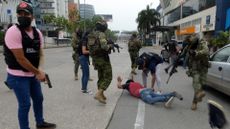 Armed gangs, prison breaks and on-air hostages: how Ecuador was plunged into crisis
Armed gangs, prison breaks and on-air hostages: how Ecuador was plunged into crisisThe Explainer Gangs launch deadly revenge after president declares state of emergency following escape of feared drug boss from prison
By Harriet Marsden, The Week UK Published
-
 Ecuador tips toward chaos amid prison breaks, armed TV takeover
Ecuador tips toward chaos amid prison breaks, armed TV takeoverSpeed Read New President Daniel Noboa authorized the military to 'neutralize' powerful drug-linked gangs after they unleashed violence and terror across Ecuador
By Peter Weber, The Week US Published